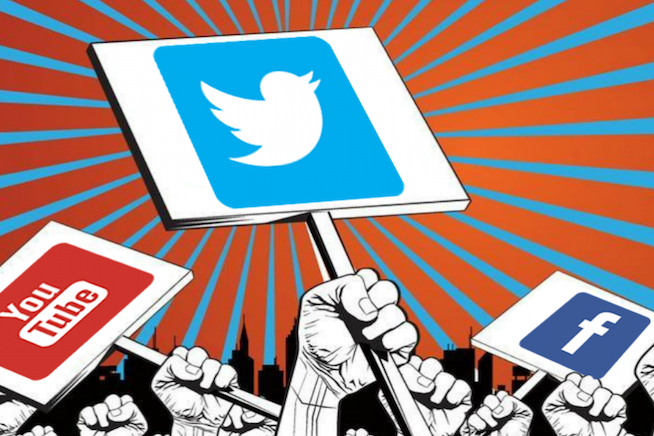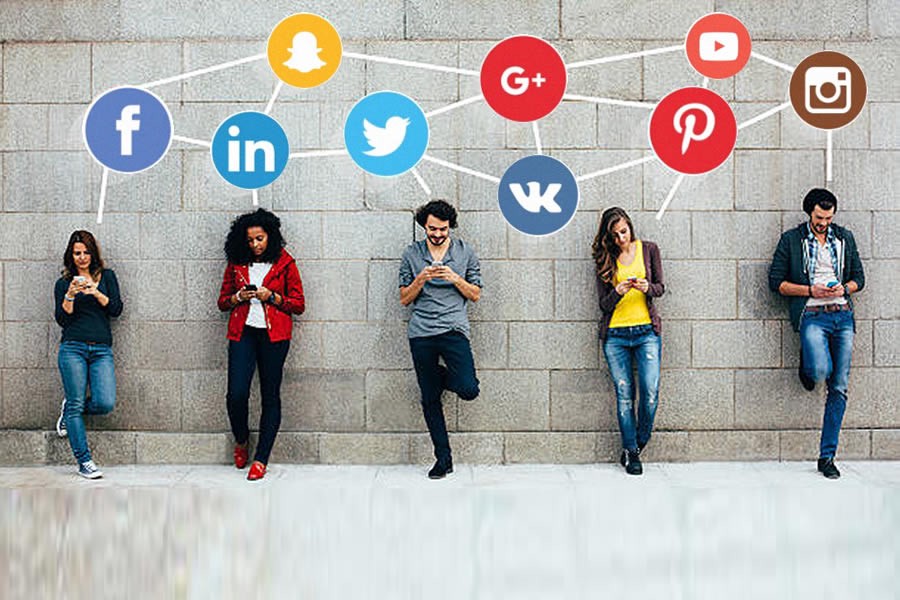
In this day and age, it’s impossible not to be aware of the impact social media has on our lives. We’re all part of a global conversation that takes place on a daily basis—and when it comes to politics, there’s no doubt that social media has transformed the way campaigns are conducted and public discourse takes place.
But what exactly is this influence? How does it affect us? And how can we use it to our advantage?
Let’s take a look at some of the key aspects of this influence:
Information Dissemination
Social media has changed the world. And it’s not just because you can see what your friends are eating for lunch, or that you can watch an entire season of a TV show in one sitting (although those things are pretty great). It’s also because social media has democratized the distribution of political information. Anyone with internet access can share news, opinions, and content, potentially reaching a global audience. This has allowed grassroots movements and marginalized voices to gain visibility, challenging traditional media gatekeeping.
Social media platforms have made it possible for people who were once voiceless to find their voice—and for others to amplify it. It’s given us the opportunity to make our voices heard in ways that would have been impossible just a few years ago.
Political Campaigns
Social media has become an integral part of political campaigns. Candidates use platforms to raise funds, mobilize supporters, share their policy positions, and engage in debates. Platforms like Facebook also offer targeted advertising, allowing campaigns to tailor messages to specific demographics.
The 2016 presidential election saw a spike in political activity on social media. The presidential nominees spent more than $1 billion on Facebook advertising alone—more than double the amount spent by Barack Obama and Mitt Romney in 2012. This surge in spending is due to the ability of social media platforms to target advertisements based on demographic information such as age, gender, and location.
By targeting ads based on age and location, candidates can reach voters who are most likely to support them or oppose their opponents’ policies. For example, if a candidate wants support from younger voters who are likely to be college students living away from home for the first time and may not have much money to donate, they might advertise on Facebook with videos featuring young people talking about their financial struggles with tuition costs or housing costs while attending school far from home.”
Echo Chambers and Polarization
Social media algorithms tend to show users content similar to what they already engage with, creating echo chambers where individuals are exposed to a narrow range of perspectives. This can lead to political polarization as people become isolated from differing viewpoints.
In an echo chamber, people’s social media feeds and search results are populated by sources that reflect their own opinions. In this way, individuals can become more extreme in their ideas because they aren’t being challenged by opposing views. This phenomenon is called confirmation bias; people tend to seek out information that supports their pre-existing beliefs, leading them away from challenging new ideas or experiences.
The effects of these echo chambers have been seen in political polarization in recent years. As people have increasingly retreated into like-minded groups online, they’ve become more extreme in their views and less receptive towards other points of view—a trend that has played out across both sides of the political spectrum.
Transparency and Accountability
Social media has increased transparency by making it easier to track politicians’ statements, actions, and promises. This can hold elected officials accountable for their decisions and help prevent misinformation. We all know that politicians are often not entirely honest. They may lie to get elected or because they don’t want to admit to something—or even because they’re just not good at communicating their intentions. But social media changes that by giving the public a chance to see what’s going on behind the scenes of politics.
In fact, social media makes it easier than ever for the public to keep tabs on what politicians are saying or doing. It also makes it possible for people to hold them accountable for those actions and statements. This means that if someone says something on Twitter or Facebook, then does something else in real life, people will be able to point out their hypocrisy—and maybe even vote them out of office!
Youth Engagement
The younger generations, who are more connected to social media, have been able to use these platforms to express their political views, participate in activism, and influence policy discussions.

A study from the Pew Research Center found that young people were more likely to be politically engaged online than older generations. The study found that almost half of Americans aged 18-29 used social media for political purposes in the past year. This compared with around a third of those aged 30-64 and just over one fifth of those aged 65+.
In addition, according to a survey by the Knight Foundation, young adults are more likely than older adults to engage in civic activities such as contacting elected representatives or volunteering for a cause.
Policy Formation
Social media provides a platform for open debates on policy issues, allowing politicians to directly interact with constituents and gather input. However, the quality of these discussions can vary widely. On one hand, social media can be a powerful tool for engaging the public in political discussion. Politicians can use it to reach out to voters, share information about their policies, and answer questions from constituents. It also allows them to directly engage with voters and get feedback on how people feel about certain issues.
On the other hand, social media has also been criticized by some as being too impersonal or shallow compared to other forms of communication like face-to-face interactions or phone calls. This may make it difficult for politicians to truly understand what their constituents want when they take part in online debates about policy issues or campaign platforms.
Privacy Concerns
The use of social media in politics raises privacy concerns, as personal data collected from users can be exploited for targeted campaigning or influence efforts. Personal information collected from users can include their location, age, gender, and interests. The companies that provide this information to campaigns often sell it for purposes other than voter targeting and influence, including advertising and marketing.
The problem is that there’s no way for an individual to know what information about them is being used by political campaigns. There are no federal laws requiring campaigns to report how or where they collect or use data on voters, making it difficult to assess potential privacy concerns.
In summary, social media’s influence on politics is substantial and evolving. While it has empowered grassroots movements, expanded access to political information, and increased political engagement, it has also brought challenges such as the spread of misinformation, polarization, and foreign manipulation. Its impact is likely to continue shaping political landscapes worldwide, necessitating ongoing discussions about regulation, ethics, and responsible use.
RUCHI RATHOR Founder & CEO
Payomatix Technologies Pvt. Ltd.
FOUNDER AND INVESTOR | PAYMENTS PROCESSING EXPERT | MERCHANT ACCOUNT SOLUTIONS | WHITE LABELLED PAYMENT GATEWAY | Dreamer, Creator, Achiever, Constantly Evolving
Website Ruchi Rathor: https://ruchirathor.com
Website Healing Heart https://thehealingheart.me/
Instagram https://www.instagram.com/_ruchirathor_/
LinkedIn https://www.linkedin.com/in/ruchirathor12/
Facebook https://www.facebook.com/ruchi.rathor.magnificient
Tumblr https://www.tumblr.com/blog/ruchirathor-thehealingheart
Medium https://medium.com/@ruchirathor_23436









